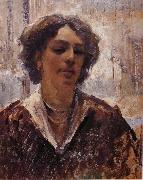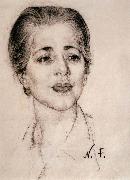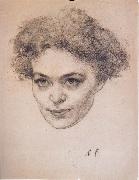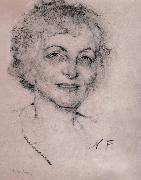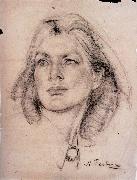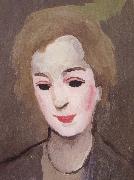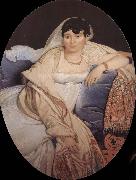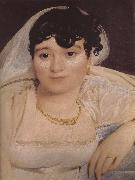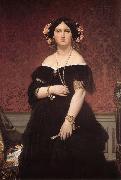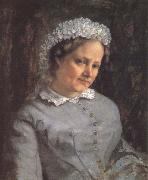Wholesale Oil Painting No Minimum |
|||||||||||
|
|
|||||||||||

|
|||||||||||
|
|
|
||||||||
Nikolay FechinRussian, 1881-1955 |
||||||||
|
|
||||||||
Portrait of Lady
Portrait of Lady Painting ID:: 50305 |
mk211
about 1900
oil on paper
60x47.5cm
mk211 about 1900 oil on paper 60x47.5cm |
|||||||
|
|
||||||||
Nikolay FechinRussian, 1881-1955 |
||||||||
|
|
||||||||
|
|
Portrait of lady
Portrait of lady Painting ID:: 50431 |
mk211
1930-1940
42.5x35cm
mk211 1930-1940 42.5x35cm |
||||||
|
|
||||||||
Nikolay FechinRussian, 1881-1955 |
||||||||
|
|
||||||||
|
|
Portrait of lady
Portrait of lady Painting ID:: 50432 |
mk211
1930-1940
42x32cm
mk211 1930-1940 42x32cm |
||||||
|
|
||||||||
Nikolay FechinRussian, 1881-1955 |
||||||||
|
|
||||||||
|
|
Portrait of lady
Portrait of lady Painting ID:: 50434 |
mk211
1930-1940
47x34.2cm
mk211 1930-1940 47x34.2cm |
||||||
|
|
||||||||
Nikolay FechinRussian, 1881-1955 |
||||||||
|
|
||||||||
|
|
Portrait of lady
Portrait of lady Painting ID:: 50445 |
mk211
1930-1940
47x34.2cm
mk211 1930-1940 47x34.2cm |
||||||
|
|
||||||||
Marie LaurencinFrench Painter, ca.1885-1956 French painter, stage designer and illustrator. After studying porcelain painting at the Sevres factory (1901) and drawing in Paris under the French flower painter Madelaine Lemaire (1845-1928), in 1903-4 she studied at the Academie Humbert in Paris, where she met Georges Braque and Francis Picabia. In 1907 she first exhibited paintings at the Salon des Independants, met Picasso at Clovis Sagot gallery and through Picasso was introduced to the poet Guillaume Apollinaire. Laurencin and Apollinaire were soon on intimate terms, their relationship lasting until 1912. |
||||||||
|
|
||||||||
|
|
Portrait of Lady
Portrait of Lady Painting ID:: 52860 |
mk224
Oil on canvas
33x24cm
1954
mk224 Oil on canvas 33x24cm 1954 |
||||||
|
|
||||||||
Jean-Auguste Dominique IngresFrench Neoclassical Painter, 1780-1867 was a French Neoclassical painter. Although he considered himself a painter of history in the tradition of Nicolas Poussin and Jacques-Louis David, by the end of his life it was Ingres' portraits, both painted and drawn, that were recognized as his greatest legacy. A man profoundly respectful of the past, he assumed the role of a guardian of academic orthodoxy against the ascendant Romantic style represented by his nemesis Eug??ne Delacroix. His exemplars, he once explained, were "the great masters which flourished in that century of glorious memory when Raphael set the eternal and incontestable bounds of the sublime in art ... I am thus a conservator of good doctrine, and not an innovator." Nevertheless, modern opinion has tended to regard Ingres and the other Neoclassicists of his era as embodying the Romantic spirit of his time, while his expressive distortions of form and space make him an important precursor of modern art.. |
||||||||
|
|
||||||||
|
|
Portrait of Lady
Portrait of Lady Painting ID:: 53171 |
mk227
116x82cn
1805
mk227 116x82cn 1805 |
||||||
|
|
||||||||
Jean-Auguste Dominique IngresFrench Neoclassical Painter, 1780-1867 was a French Neoclassical painter. Although he considered himself a painter of history in the tradition of Nicolas Poussin and Jacques-Louis David, by the end of his life it was Ingres' portraits, both painted and drawn, that were recognized as his greatest legacy. A man profoundly respectful of the past, he assumed the role of a guardian of academic orthodoxy against the ascendant Romantic style represented by his nemesis Eug??ne Delacroix. His exemplars, he once explained, were "the great masters which flourished in that century of glorious memory when Raphael set the eternal and incontestable bounds of the sublime in art ... I am thus a conservator of good doctrine, and not an innovator." Nevertheless, modern opinion has tended to regard Ingres and the other Neoclassicists of his era as embodying the Romantic spirit of his time, while his expressive distortions of form and space make him an important precursor of modern art.. |
||||||||
|
|
||||||||
|
|
Portrait of Lady
Portrait of Lady Painting ID:: 53172 |
mk227
1805
mk227 1805 |
||||||
|
|
||||||||
Jean-Auguste Dominique IngresFrench Neoclassical Painter, 1780-1867 was a French Neoclassical painter. Although he considered himself a painter of history in the tradition of Nicolas Poussin and Jacques-Louis David, by the end of his life it was Ingres' portraits, both painted and drawn, that were recognized as his greatest legacy. A man profoundly respectful of the past, he assumed the role of a guardian of academic orthodoxy against the ascendant Romantic style represented by his nemesis Eug??ne Delacroix. His exemplars, he once explained, were "the great masters which flourished in that century of glorious memory when Raphael set the eternal and incontestable bounds of the sublime in art ... I am thus a conservator of good doctrine, and not an innovator." Nevertheless, modern opinion has tended to regard Ingres and the other Neoclassicists of his era as embodying the Romantic spirit of his time, while his expressive distortions of form and space make him an important precursor of modern art.. |
||||||||
|
|
||||||||
|
|
Portrait of Lady
Portrait of Lady Painting ID:: 53276 |
mk227
146.7x100.3cm
1851
mk227 146.7x100.3cm 1851 |
||||||
|
|
||||||||
Gustave Courbet1819-1877 French Gustave Courbet Locations was a French painter whose powerful pictures of peasants and scenes of everyday life established him as the leading figure of the realist movement of the mid-19th century. Gustave Courbet was born at Ornans on June 10, 1819. He appears to have inherited his vigorous temperament from his father, a landowner and prominent personality in the Franche-Comte region. At the age of 18 Gustave went to the College Royal at Besancon. There he openly expressed his dissatisfaction with the traditional classical subjects he was obliged to study, going so far as to lead a revolt among the students. In 1838 he was enrolled as an externe and could simultaneously attend the classes of Charles Flajoulot, director of the ecole des Beaux-Arts. At the college in Besançon, Courbet became fast friends with Max Buchon, whose Essais Poetiques (1839) he illustrated with four lithographs. In 1840 Courbet went to Paris to study law, but he decided to become a painter and spent much time copying in the Louvre. In 1844 his Self-Portrait with Black Dog was exhibited at the Salon. The following year he submitted five pictures; only one, Le Guitarrero, was accepted. After a complete rejection in 1847, the Liberal Jury of 1848 accepted all 10 of his entries, and the critic Champfleury, who was to become Courbet first staunch apologist, highly praised the Walpurgis Night. |
||||||||
|
|
||||||||
|
|
Portrait of Lady
Portrait of Lady Painting ID:: 55556 |
mk242
1865
Oil on canvas
73x59cm
mk242 1865 Oil on canvas 73x59cm |
||||||
|
|
||||||||
|
Gustave Courbet 1819-1877 French Gustave Courbet Locations was a French painter whose powerful pictures of peasants and scenes of everyday life established him as the leading figure of the realist movement of the mid-19th century. Gustave Courbet was born at Ornans on June 10, 1819. He appears to have inherited his vigorous temperament from his father, a landowner and prominent personality in the Franche-Comte region. At the age of 18 Gustave went to the College Royal at Besancon. There he openly expressed his dissatisfaction with the traditional classical subjects he was obliged to study, going so far as to lead a revolt among the students. In 1838 he was enrolled as an externe and could simultaneously attend the classes of Charles Flajoulot, director of the ecole des Beaux-Arts. At the college in Besançon, Courbet became fast friends with Max Buchon, whose Essais Poetiques (1839) he illustrated with four lithographs. In 1840 Courbet went to Paris to study law, but he decided to become a painter and spent much time copying in the Louvre. In 1844 his Self-Portrait with Black Dog was exhibited at the Salon. The following year he submitted five pictures; only one, Le Guitarrero, was accepted. After a complete rejection in 1847, the Liberal Jury of 1848 accepted all 10 of his entries, and the critic Champfleury, who was to become Courbet first staunch apologist, highly praised the Walpurgis Night. Portrait of Lady mk242 1865 Oil on canvas 73x59cm |
||||||||
|
|
||||||||
|
Prev Next
|
||||||||
|
|
||||||||
|
Related Paintings to Gustave Courbet :. |
||||||||
|
|
||||||||
|
CONTACT US |
